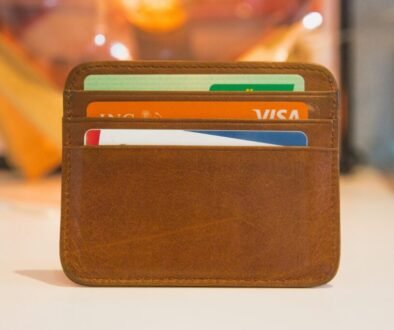Credit Card Basics for New Immigrants: A Beginner’s Guide to Understanding Credit Cards
Moving to a new country is an exciting adventure filled with new opportunities and challenges. As you settle into your new life, one of the most important things you’ll need to learn is how to manage your finances. Among these financial essentials is understanding credit cards—a tool that can be incredibly beneficial if used wisely. This guide is here to help you, as a new immigrant, navigate the world of credit cards with confidence, ensuring you make informed decisions that support your financial future.
Why Understanding Credit Cards Matters for New Immigrants
Credit cards can be a powerful tool in managing your finances and building a solid credit history in the United States. However, if not handled properly, they can also lead to financial stress. By getting familiar with the basics of credit cards, you’ll be better equipped to use them to your advantage while avoiding common pitfalls.
What is a Credit Card?
The Basics
Have you ever wondered what makes a credit card different from other payment methods? Think of a credit card as a short-term loan from a bank or financial institution that allows you to make purchases. Unlike a debit card that pulls money directly from your bank account, a credit card lets you borrow money up to a certain limit, which you then pay back over time.
Credit Cards vs. Debit Cards
Now why should you care about the difference between credit and debit cards. While both cards offer convenience, they work differently. With a debit card, you’re spending money you already have in your bank account. A credit card, on the other hand, gives you access to borrowed money, which you repay later. The key difference is that using a credit card responsibly helps you build a credit history, which is essential for your financial life in the U.S.
Why Credit Cards Are Important
Building Your Credit History
How can a simple piece of plastic impact your future? One of the main reasons to use a credit card is to build your credit history. Credit history is a record of how well you manage borrowed money, and it’s crucial in determining your credit score. A credit score is a number that represents your creditworthiness, ranging from 300 to 850. A good credit score opens doors to loans, better rental opportunities, and even favorable insurance rates.
Convenience and Security
Now is it safer to carry cash or a credit card. Credit cards offer the convenience of making purchases without needing to carry cash. They come with security features, such as fraud protection, which is a service that protects you against unauthorized transactions. In most cases, credit card companies offer zero liability protection, meaning you won’t be responsible for fraudulent charges on your account.
Earning Rewards
What if your everyday spending could actually pay you back? Many credit cards come with rewards programs, which are incentives offered by credit card companies to encourage you to use their card. These rewards can include points, cash back, or travel miles for every dollar you spend. Over time, these rewards can help you save money or enjoy additional benefits like extended warranties or travel insurance.
How Credit Cards Work
Credit Limit
Now you might be wondering, what’s the limit on how much you can borrow? Your credit limit is the maximum amount you can borrow with your credit card. This limit is set by the credit card issuer based on your financial profile, which includes your income, credit history, and other factors. Staying within your credit limit is important to avoid fees and protect your credit score.
Interest Rates and APR
Ever wondered how much it actually costs to borrow money on a credit card? Well if you carry a balance on your credit card, you’ll be charged interest, which is the cost of borrowing money. The interest rate on a credit card is usually expressed as the Annual Percentage Rate (APR), which is the yearly cost of borrowing money, including interest and fees. To avoid paying interest, try to pay off your balance in full each month.
Billing Cycle and Statements
How often do you need to keep track of your spending? Each month, your credit card transactions are recorded during a billing cycle, which is the period between the end of one statement and the beginning of the next. At the end of this cycle, you’ll receive a statement that details your total balance, minimum payment due, and due date. Reviewing your statement regularly helps you stay on top of your finances and catch any errors or unauthorized charges.
Choosing the Right Credit Card
Types of Credit Cards
What kind of credit card is right for you? There are two main types of credit cards: secured and unsecured. A secured credit card requires a security deposit, which acts as your credit limit and reduces the risk for the issuer. It’s a great option if you’re just starting to build credit. An unsecured credit card doesn’t require a deposit and is based on your creditworthiness, which is your ability to repay borrowed money.
What to Look For
What should you consider before signing up for a credit card? When choosing a credit card, consider:
- Annual Fees: Some credit cards charge an annual fee, which is a yearly fee for using the card. Weigh the benefits of the card against the cost of the fee.
- Interest Rates: Look for a card with a low APR, especially if you might carry a balance.
- Rewards: Choose a card with rewards that fit your spending habits, like cash back, points, or travel miles.
Popular Options for New Immigrants
Which credit cards are designed with new immigrants in mind? Several banks offer credit cards designed specifically for newcomers. These cards often have lower credit limits and may require a security deposit or proof of income. Secured credit cards from major banks are a solid option to start with.
Applying for a Credit Card
Eligibility
What do you need to qualify for a credit card? To apply for a credit card, you typically need to be at least 18 years old, have a valid Social Security number or Individual Taxpayer Identification Number (ITIN), and provide proof of income.
Documents You’ll Need
What paperwork should you have ready when applying for a credit card? When applying, be ready to provide:
- Proof of identity (e.g., passport, driver’s license)
- Proof of address (e.g., utility bill, lease agreement)
- Proof of income (e.g., pay stubs, tax returns)
The Application Process
How can you get started with your credit card application? You can usually apply for a credit card online or in person. After submitting your application and required documents, the credit card issuer will review your information and decide whether to approve your application.
Using Your Credit Card Responsibly
Timely Payments
What’s the secret to maintaining a good credit score? Paying your credit card bill on time is crucial. Late payments can result in fees, higher interest rates, and damage to your credit score. Setting up automatic payments or reminders can help ensure you never miss a due date.
Managing Credit Utilization
How much of your credit limit should you actually use? Your credit utilization ratio is the percentage of your credit limit that you’re using at any given time. For example, if your credit limit is $1,000 and your balance is $300, your credit utilization ratio is 30%. It’s recommended to keep this ratio below 30% to maintain a good credit score.
Monitoring Your Statements
Why should you regularly check your credit card statements? Regularly reviewing your credit card statements helps you catch any errors or unauthorized charges. If you spot something wrong, report it to your credit card issuer right away to prevent fraud and resolve issues quickly.
Building and Maintaining Good Credit
Understanding Credit Scores
What does your credit score say about you? Your credit score is a number that reflects your creditworthiness, ranging from 300 to 850. It’s based on factors like your payment history, credit utilization, and length of credit history. A higher score gives you better financial options.
Tips for a Healthy Credit Score
What are the habits of people with excellent credit scores?
- Pay on time: Consistently paying your bills on time is one of the most important factors in maintaining a good credit score.
- Keep balances low: High balances can negatively impact your score, so try to pay down your debt.
- Be mindful of new credit: Too many new credit applications can lower your score.
- Check your credit report: Regularly review your credit report for errors and address any issues promptly.
Common Credit Card Mistakes to Avoid
Missing Payments
What happens if you miss a credit card payment? Missing a payment can lead to fees, higher interest rates, and damage to your credit score. Always aim to pay at least the minimum due by the deadline.
Overspending
Is it possible to spend too much on a credit card? It’s easy to overspend with a credit card, but doing so can lead to high balances and debt. Stick to a budget and avoid unnecessary purchases.
Ignoring Terms and Conditions
How well do you understand your credit card’s terms and conditions? Understanding the terms and conditions of your credit card is essential. These are the rules and guidelines set by your credit card issuer, including fees, interest rates, and your responsibilities as a cardholder. Pay attention to these details to avoid surprises.
Conclusion
Recap of Key Points
How can credit cards work in your favor? As a new immigrant, mastering the use of credit cards can significantly enhance your financial well-being. By building a good credit history, managing your spending, and taking advantage of rewards, you can lay a strong foundation for your financial future in the U.S.




